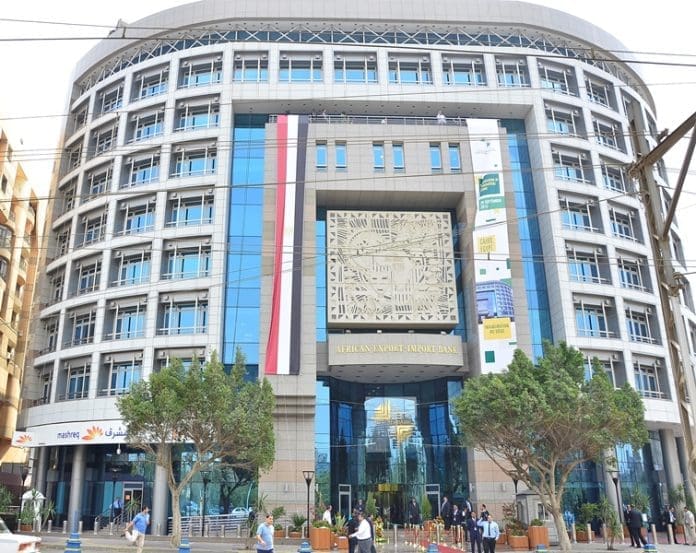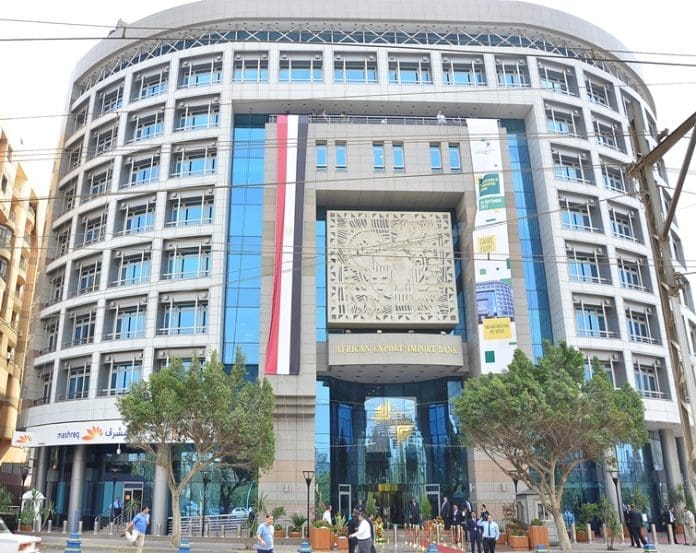
The African Export Import Bank (Afreximbank) has approved a 36.4 million dollar contract financing facility for Egypt’s SAMCO National Construction Company to build Uganda’s Akii Bua Olympic Stadium, one of the venues set to host the 2027 Africa Cup of Nations.
Located in Lira, northern Uganda, the stadium will play a key role as the country co-hosts the tournament alongside Kenya and Tanzania. The financing agreement was signed in Cairo on October 29, with Mrs. Kanayo Awani, Afreximbank’s Executive Vice President in charge of Intra African Trade and Export Development, representing the bank. SAMCO Chairman Engineer Sameh Soliman signed on behalf of the company.
The financing falls under Afreximbank’s Engineering, Procurement and Construction programme, which helps African contractors compete for and execute large scale projects across the continent. The funds will support SAMCO in the design, construction, and delivery of the stadium, including the procurement of materials and components required for completion.
Mrs. Awani said the facility underscores Afreximbank’s commitment to empowering African firms to deliver major infrastructure projects that drive growth and regional integration. We are pleased to support an African EPC company as part of Afreximbank’s EPC initiative, and to finance the construction of a state of the art stadium, she said. Through this initiative, we aim to foster sustainable economic growth, enhance regional infrastructure and facilitate the hosting of CAF and FIFA approved sports events that will contribute to Uganda’s social and economic advancement.
Engineer Soliman welcomed the partnership, describing it as a milestone that strengthens SAMCO’s expansion across Africa and its ability to deliver high impact projects. We value Afreximbank’s partnership and support in this landmark project. This collaboration reinforces our strategic commitment to expanding our presence across Africa and strengthening our role in delivering impactful infrastructure solutions. We look forward to a long term and mutually beneficial relationship with the Bank, driving growth and sustainable development across the continent, he stated.
The Akii Bua Stadium is expected to boost sports, tourism, and economic activity in Uganda while supporting the government’s infrastructure agenda. Afreximbank said the project will create jobs, strengthen local supply chains, and enhance Uganda’s capacity to host international sporting events. The facility will also consolidate SAMCO’s position as a leading African contractor capable of executing large scale, government backed projects across the continent.
The stadium is named after John Akii Bua, a Ugandan athlete who won the gold medal at the 1972 Summer Olympics in Munich. Akii Bua, who was born on December 3, 1949, and passed away on June 20, 1997, remains a national hero and symbol of athletic excellence in Uganda.
In September 2023, the Confederation of African Football announced the East Africa Pamoja bid by Kenya, Uganda, and Tanzania as the winning bid to host the 2027 AFCON tournament. The bid beat out proposals from Algeria, Egypt, Botswana, Senegal, and Nigeria. At the bidding stage, the Federation of Uganda Football Associations nominated Namboole Stadium in metropolitan Kampala, Bihanga Stadium in Fort Portal, Akii Bua Stadium in Lira City, and the proposed Hoima Sports Stadium in Hoima City.
The EPC contract was awarded to a joint venture comprising SAMCO National Construction Company and Khater Sport. The design consultant is ElRaeid Engineering Consultants, also of Egypt. In December 2024, the EPC contract was signed in Kampala between the government of Uganda and SAMCO National Construction Company. The construction cost is budgeted at 129 million dollars, approximately 470 billion Ugandan shillings.
Building the stadium is expected to last 20 months. In 2025, the Turkish engineering company POLARKON was subcontracted to undertake the steel space frame roof and façade construction of the stadium. The proposed stadium will sit on a piece of real estate in the city centre referred to as the John Akii Bua Playground, measuring approximately 18.455 hectares.
The project experienced delays after the government of China withdrew its offer to fund both Akii Bua Stadium in Lira and Buhinga Stadium in Fort Portal in March 2023. The EPC contractor will fund the construction and be paid at or after commercial commissioning.
Beyond Uganda, the deal aligns with Afreximbank’s broader strategy to promote African contractors and integrate sports infrastructure into the continent’s economic development plans. The bank has been deploying innovative structures for over 30 years to deliver financing solutions that support the transformation of Africa’s trade structure, accelerating industrialization and intra regional trade.
Afreximbank is a stalwart supporter of the African Continental Free Trade Area, having launched a Pan African Payment and Settlement System that was adopted by the African Union as the payment and settlement platform to underpin the AfCFTA implementation. Working with the AfCFTA Secretariat and the AU, the bank has set up a 10 billion dollar Adjustment Fund to support countries effectively participating in the AfCFTA.
At the end of December 2024, Afreximbank’s total assets and contingencies stood at over 40.1 billion dollars, and its shareholder funds amounted to 7.2 billion dollars. The bank has investment grade ratings assigned by GCR international scale, Moody’s, China Chengxin International Credit Rating Co. Ltd., Japan Credit Rating Agency, and Fitch.
The 2027 AFCON will mark the first time East Africa has hosted the tournament since 1976. The development of the Akii Bua Olympic Stadium is expected to greatly promote sports in Uganda and engender regional integration and tourism in East Africa while supporting infrastructure development. It will strengthen the government’s sports and infrastructure agenda, enhancing the country’s capacity to host CAF and FIFA approved events and contributing to national pride, youth engagement, and economic diversification.
The project is anticipated to catalyze local economic growth by generating employment opportunities during the construction and operational phases, stimulating local supply chains, and attracting international events that will enhance Uganda’s global visibility.
